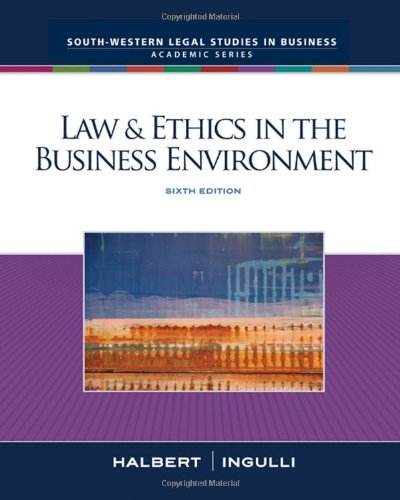In this case, we see both the company and the employee between a rock and a hard
Question:
In this case, we see both the company and the employee between a rock and a hard place. Echazabal must choose to either further endanger his health or lose a coveted opportunity, while Chevron is caught between liability under the ADA and liability for unsafe work conditions. Suppose you were a top manager inside Chevron, responsible for strategic planning on workplace safety. Is there anything you and your firm could do to prevent or minimize the risk of this type of scenario from developing in the future?
Mario Echazabal sues over not getting a job handling liver-toxic substances, i.e., “hydrocarbon liquids and vapors, acid, caustic, refinery waste water and sludge, petroleum solvents, oils, greases, and chlorine bleach.” He was denied the job because he suffers from a chronic, uncorrectable, and life-threatening viral liver disease, Hepatitis C, that most likely will be aggravated by exposure to these hazardous materials to the extent that his life will be endangered.
[Under the ADA, employers are not required to hire disabled individuals unless they are “otherwise qualified” to handle the “essential functions” of the job.] … Mr. Echazabal simply is not “otherwise qualified” for the work he seeks. Why? Because the job most probably will endanger his life. I do not understand how we can claim he can perform the essential functions of the position he seeks when precisely because of his disability, those functions may kill him. To ignore this reality is bizarre.…
Our law books, both state and federal, overflow with statutes and rules designed by representative governments to protect workers from harm long before we rejected the idea that workers toil at their own peril in the workplace. “Paternalism” here is just an abstract out-of-place label of no analytical help. Whether paternalism or maternalism, the concept is pernicious when it is allowed to dislodge longstanding laws mandating workplace safety. That battle was fought and lost long ago in our legislatures. In many jurisdictions, it is a crime knowingly to subject workers to life-endangering conditions.… In effect, we repeal these laws with respect to [Echazabal], and to other workers in similar situations. So much for OSHA. Now, our laws give less protection to workers known to be in danger than they afford to those who are not. That seems upside down and backwards.
Precisely the workers who need protection can sue because they receive what they need.…
Step by Step Answer:

Law And Ethics In The Business Environment
ISBN: 9780324657326
6th Edition
Authors: Terry Halbert , Elaine Ingulli





